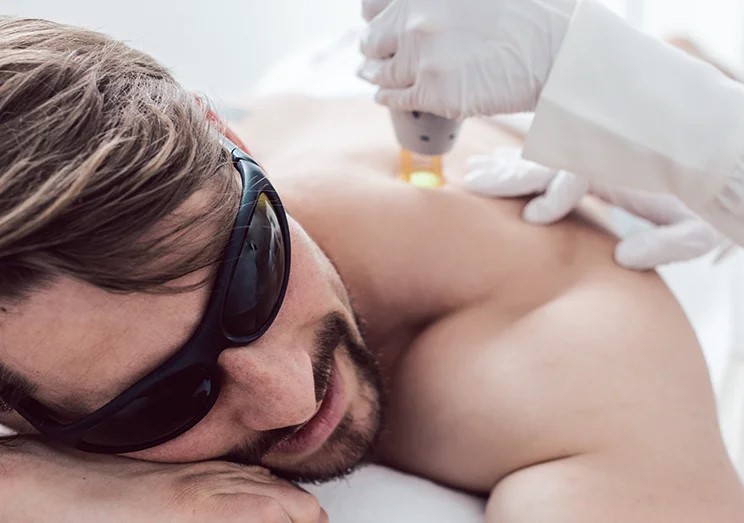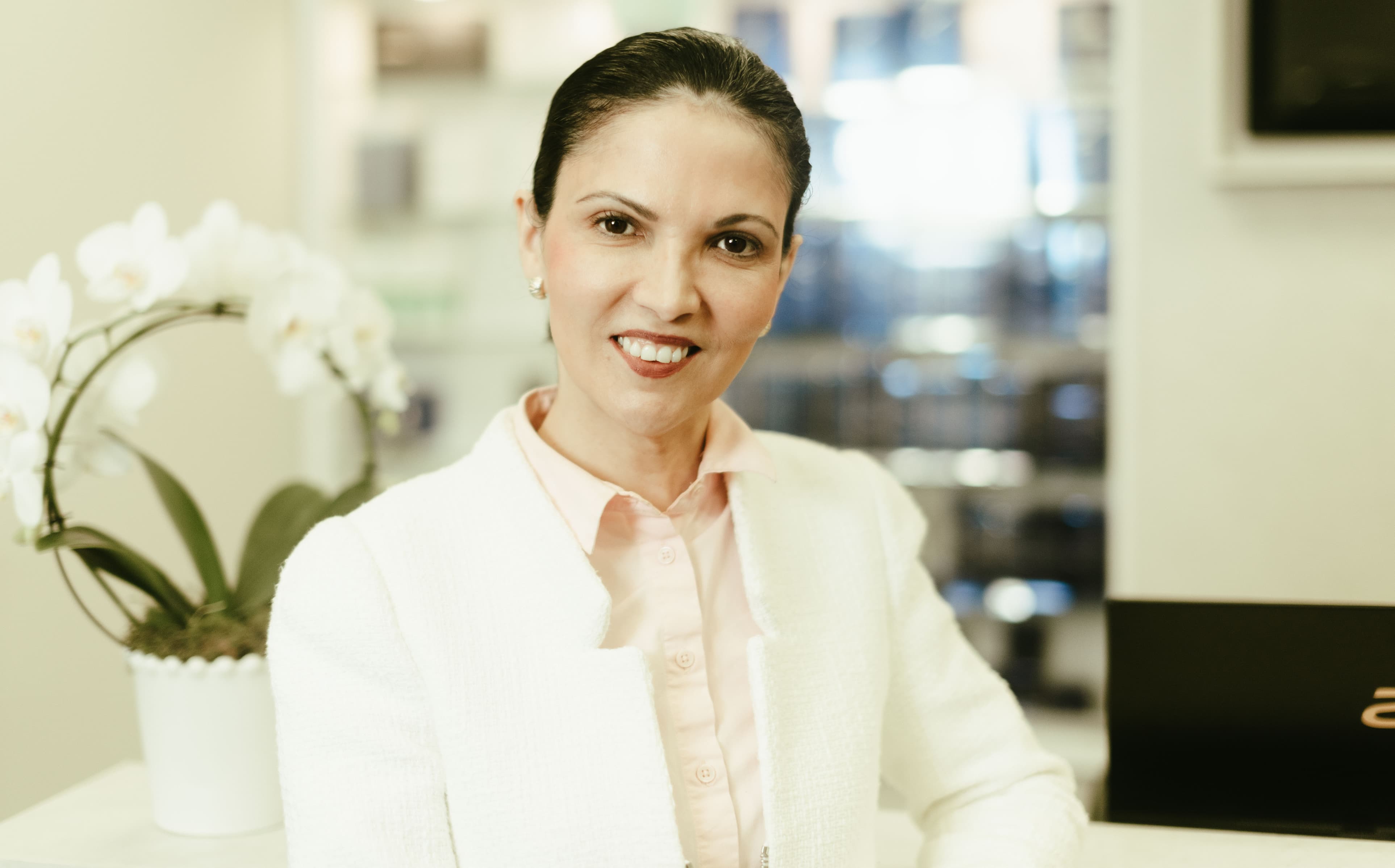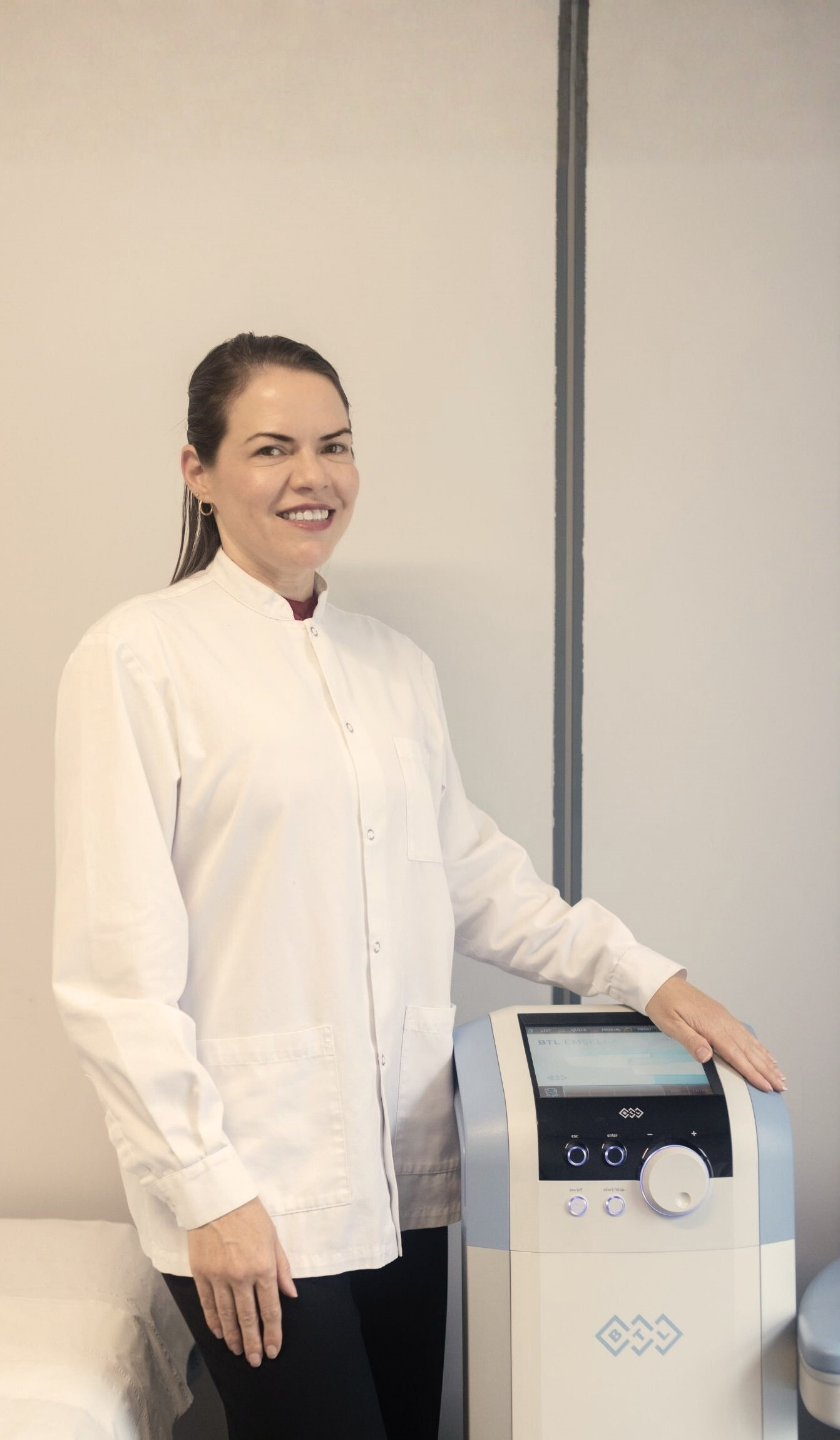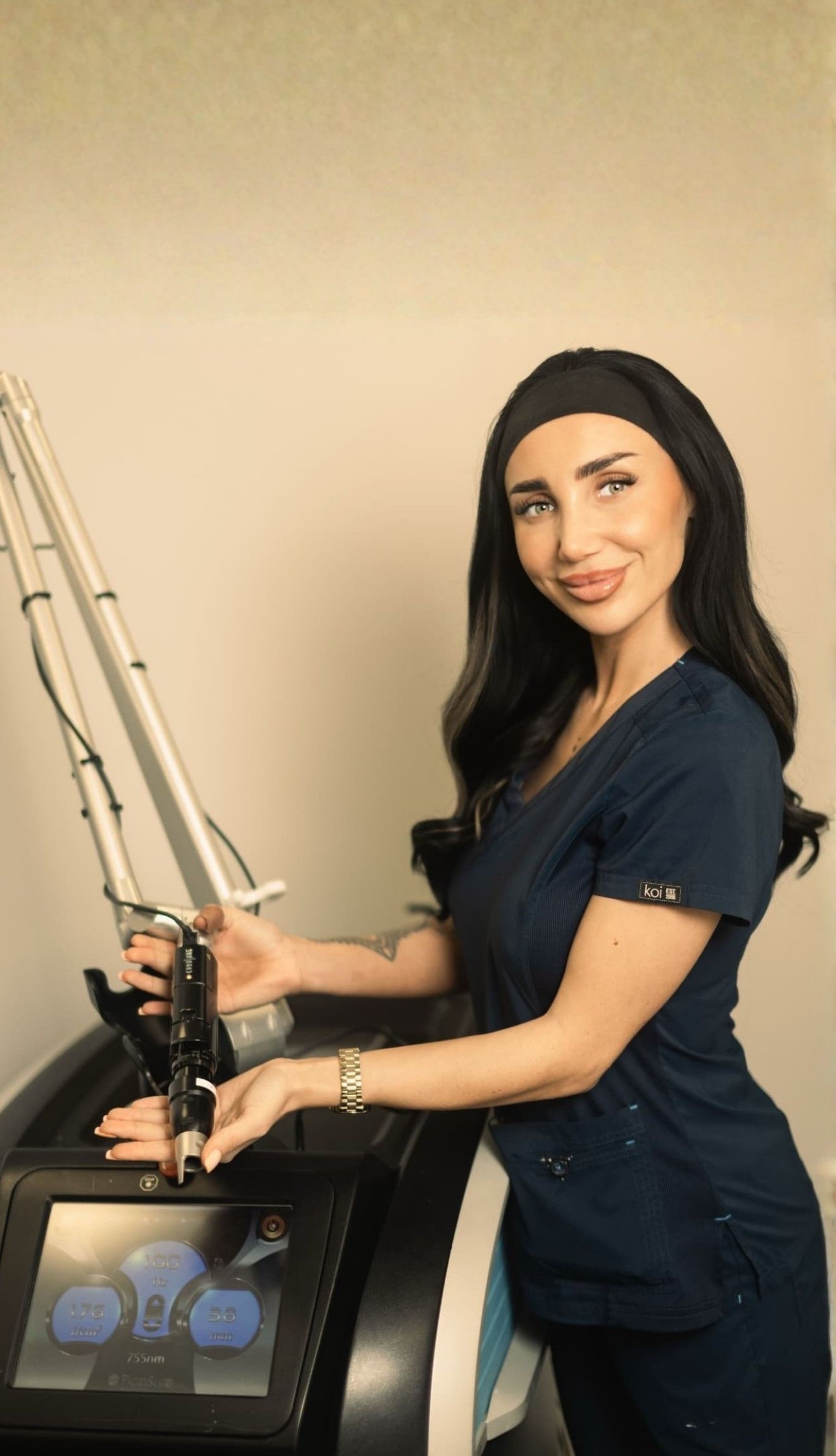
Laser Hair Removal
Permanently remove unsightly hair.
- What is it? Laser treatment to prevent hair growth.
- How does it work? Light causes a reaction in the hair follicle which destroys the hair root and prevents regrowth.
- How much does it cost? From €20.
Laser hair removal can be used to remove hair in unwanted places and prevent regrowth.
It works by using a hand-held applicator to emit a light over the target area. The light causes a reaction in the hair follicle which, after repeated treatment, destroys the hair root and prevents it from re-growing.
The light emitted by the applicator is attracted to darker colours. This means the darker the hair is in relation to the colour of the skin, the more effective laser hair removal is.
Why choose Dundrum Clinic?
Our experienced team have carried out thousands of laser hair removal treatments since we opened in 2006. It has always been one of our most popular treatments at our Dublin clinic, and you only have to read some of our reviews to see how happy our customers are with their results.
Not only are our aestheticians trained by the laser manufacturers themselves, but we’re the only clinic in Ireland with Core of Knowledge certification and on-site Laser Protection Supervisor.
We also use a wide range of equipment (Candela GentleMax Pro, YAG and ALEX) to carry out this treatment. It means you can choose the one that's right for you based on your own needs and desires. This isn't a one-size fits all solution - we'll make sure you're 100% comfortable before going ahead.
Frequently asked questions
During your procedure we'll emit a low-level laser beam using a handheld applicator. When targeted at unwanted hair, the laser is drawn to the melanin pigment found in dark hair. The hair follicle is disrupted as the melanin absorbs the light, and the hair follicle loses its ability to produce more hair.
Patients normally require several sessions to see the full benefits of the treatment. This is because we need to target each individual hair during the correct growth phase of its life cycle.
The results of laser hair removal can last anywhere from several months to several years, and results differ from person-to-person. You may need maintenance treatments to prevent re-growth.
To be effective, the hair colour needs to be heavier than the skin. The easiest hair colour to treat is black hair, as this hair colour contains more melanin than other hair colours, assisting the conversion of the laser energy.
Lighter hair can take longer to treat as there is less melanin to work with. White or grey hair doesn't respond well due to the lack of melanin.
Sun-tanned skin is not suitable for laser hair removal, the individual must wait until the tan has faded. Dark-skinned individuals require more care with this type of hair removal.
Laser hair removal is very different from both electrolysis and waxing. For example, electrolysis is far slower – the probe has to treat each hair one by one.
For waxing, the hair needs to be a certain length before the treatment can be repeated. In some cases, the after-effects of waxing, such as in-grown hairs and adverse skin reactions, can be an issue for patients.
Laser hair removal works on larger areas of hair growth, so is much faster. It is more effective as well as being less painful than other methods.
There are a few precautions you should take before your treatment:
- The hair for treatment should be about 1-2mm long to achieve the best results.
- In the 6 weeks before your first session, do not shave, pluck or wax the hair.
- Avoid overexposure to the sun for 4 weeks prior to your first session until after your final treatment.
- We can't carry out the treatment if you have recently been using fake tan on your skin.
After the treatment:
- Keep your skin covered from the sun for four weeks by using a sunscreen with a SPF of 30 or more.
- It's normal to experience a little tenderness and swelling after the procedure. We will recommend an appropriate cream/gel to use after each session.
- In the 48 hours after your treatment you will need to avoid anything that will heat up the skin. This includes steam rooms, sauna treatments, warm showers, baths and excessive exercise.
- Perfumed lotions and soaps should not be applied to the treated area, and you shouldn't go swimming in this 48-hour period.
Laser hair removal is not generally considered to be a painful procedure. Most of our patients simply feel a warm sensation during the treatment.
If you believe you're particularly sensitive to pain then we can provide you with a numbing cream. We will also provide you with special glasses to protect your eyes from the laser beam.
Your initial consultation lasts about 30 minutes.
A facial laser hair removal treatment session usually takes just 10 minutes.
Treatment of larger areas takes approximately 45 minutes.
This depends on a number of factors including which part of the body is being treated, the density of the hair in that area, the thickness of the hair, your age, your ethnicity, and hormonal status.
That being said, most patients require between six and eight sessions.
After treatment your hair will loosen in the skin, often making it easy to remove yourself. You may also notice a reddening of the skin ring shortly after treatment. However, often there are no obvious signs. Essentially, the treatment has worked if your hair doesn't grow back!
Laser hair removal is not suitable for people experiencing any of these conditions:
- Pregnancy
- Epilepsy
- Kidney Disease
- Diabetes (without a doctor’s letter)
- Gold Injections
- Moles
- Active Tan
- Vitiligo
We will make sure you're suitable for the treatment during your initial consultation.
Because laser hair removal is bespoke, costs can vary. However, you can use the prices below as a rough guide:
- One session of underarm treatment: €20
- Six sessions for lip treatment: €150
- Six sessions of full leg, bikini or underarm: €799
You can also pay for your treatment in instalments. Speak to us for more details.







